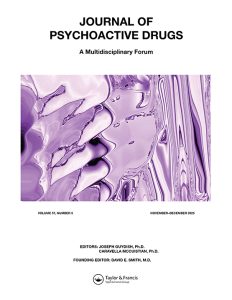 “How to Change Your Mind: What the New Science of Psychedelics Teaches Us About Consciousness, Dying, Addiction, Depression, and Transcendence” is a groundbreaking work by acclaimed author Michael Pollan. Known for his in-depth explorations of food, plants, and the natural world, Pollan turns his attention in this book to the transformative power of psychedelic substances, providing a fascinating blend of history, science, and personal narrative.
“How to Change Your Mind: What the New Science of Psychedelics Teaches Us About Consciousness, Dying, Addiction, Depression, and Transcendence” is a groundbreaking work by acclaimed author Michael Pollan. Known for his in-depth explorations of food, plants, and the natural world, Pollan turns his attention in this book to the transformative power of psychedelic substances, providing a fascinating blend of history, science, and personal narrative.
Pollan’s journey into the world of psychedelics is both a personal and a journalistic exploration. The book is structured around several key themes: the history of psychedelics, the current scientific renaissance exploring their potential therapeutic benefits, and Pollan’s own experiences with these substances. He takes readers through a meticulous investigation into how psychedelics like LSD, psilocybin, and others have been used across different cultures and eras, and how they were originally embraced and later vilified in the West.
Pollan provides a rich historical backdrop, detailing the rise of psychedelics in the 1950s and 60s, their subsequent fall from grace amid the cultural upheavals of the 1960s, and their reemergence in the 21st century as tools for psychological and spiritual exploration. He introduces key figures in the psychedelic movement, such as Albert Hofmann, Timothy Leary, and Roland Griffiths, and explores how their work laid the foundation for today’s renewed interest in psychedelics.
One of the book’s core strengths is its exploration of the contemporary scientific landscape. Pollan delves into the latest research on psychedelics’ potential to treat mental health conditions like depression, anxiety, PTSD, and addiction. He interviews scientists, therapists, and patients, providing a balanced and evidence-based view of the benefits and risks associated with psychedelic therapy. Pollan effectively communicates complex neuroscientific concepts in a way that is accessible to the lay reader, explaining how psychedelics can alter consciousness by affecting brain function, particularly the default mode network.
Pollan’s personal experiences with psychedelics are interwoven throughout the narrative, adding a compelling and relatable dimension to the book. He approaches his psychedelic experiences with a mix of curiosity, skepticism, and a deep desire to understand how these substances can alter human consciousness. These chapters are candid and reflective, offering insights into his own fears, revelations, and the profound shifts in perception that psychedelics can bring about. Pollan’s accounts provide a humanizing touch to the broader scientific and historical discussions, making the book not only informative but also deeply engaging.
Pollan’s writing is, as always, clear, engaging, and thought-provoking. He has a knack for making complex subjects accessible and interesting to a broad audience. His narrative style is approachable, blending rigorous journalism with personal storytelling in a way that invites readers to question their own beliefs about psychedelics, consciousness, and mental health.
While “How to Change Your Mind” is largely optimistic about the potential of psychedelics, Pollan does not shy away from discussing the potential risks and ethical concerns surrounding their use. He addresses the possibility of bad trips, the potential for misuse, and the need for careful consideration and professional supervision in therapeutic contexts. Some readers may feel that Pollan’s approach is overly cautious, particularly those who are more familiar with the subject matter, but this caution is part of the book’s balanced approach.
“How to Change Your Mind” is a thoughtful, well-researched, and compelling exploration of the world of psychedelics. Michael Pollan successfully combines history, science, and personal experience to provide a comprehensive overview of this complex and controversial subject. Whether you are new to the topic or have a long-standing interest in psychedelics, this book offers valuable insights and a fresh perspective on how these substances might play a role in understanding and treating some of the most challenging mental health issues of our time. Pollan’s work is a must-read for anyone interested in the intersection of science, spirituality, and human consciousness.




